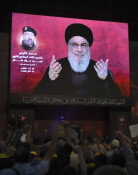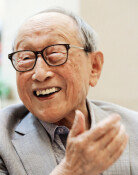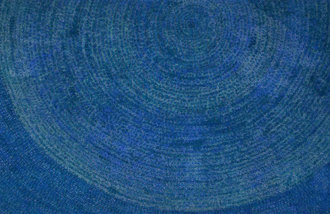[Opinion] A Small Woman of Steel
Iraqi females, who people say have been liberated from oppression and sorrow, cannot leave their homes freely. The reason is that in an anarchic state of violence, crime, and pillaging, females are the most vulnerable. Girls cannot go to school for the fear of rape and kidnapping. A female dentist uses all her income to pay her driver because walking to and from the hospital is too frightful. It is of little solace even if you survive a rape. You could be murdered by your own family in order to protect your familys honor. Amnesty International recently reported that the situation was the same for Afghanistans, even after two years of liberation from the Taliban regime. Delivered after the U.S. drove out the Talibans, First Lady Laura Bushs statement that, An Afghanistan, with no womens rights, will see no development has become a self-fulfilling prophecy. Afghanistan and Iraq, currently with no womens rights is indeed, in chaos.
Shirin Ebadi, the first Islamic female and Iranian to win the Nobel Peace Prize, shows a different side of the axis of evil of Iran. 63 percent of university students in this country are female. Women account for 30 percent of the labor force, and 14 out of 270 members of parliament are female. Of course, women still have to seek permission from their husbands or fathers to work or travel abroad. There are more difficulties for the wife in the case of a divorce. Nevertheless, it is the actions of women like Ebadi, who has struggled as a lawyer and human rights activist, which has brought the level of womens rights to the meager level it is today.
Ebadi graduated from law school at University of Tehran, and became Irans first female judge in 1974, before she was dismissed from her post five years later during the Iranian Revolution. The reason was that, according to Islamic law, women are too emotional to be judges. Instead of resorting to resistance and violence, Ebadi used that Islamic law as a tool for struggle. She found that nowhere does the Islamic law state that women are inferior. She emphasized the need to pursue human rights and democracy by reinterpreting the Koran according to changes in the world. She said, I am afraid, for I am only human, but I have learned to overcome this fear. Noting the fearless struggle of the small, soft-voiced female, Iranians called her a small women of steel.
However, Ebadis winning the Nobel Prize did not seem to sit well with many, from people in Rome to politicians in her homeland, Iran. The Vatican had difficulty hiding their disappointment after having high hopes for what could possibly be Pope John Paul Ⅱs last chance to win the Nobel Prize. Conservative hard-liners in Iran are worried that the Nobel Prize result represents political intentions of Europe to promote democracy and reform. A small woman of steel, who nonviolently confronted violence through law, is changing the Middle East.







